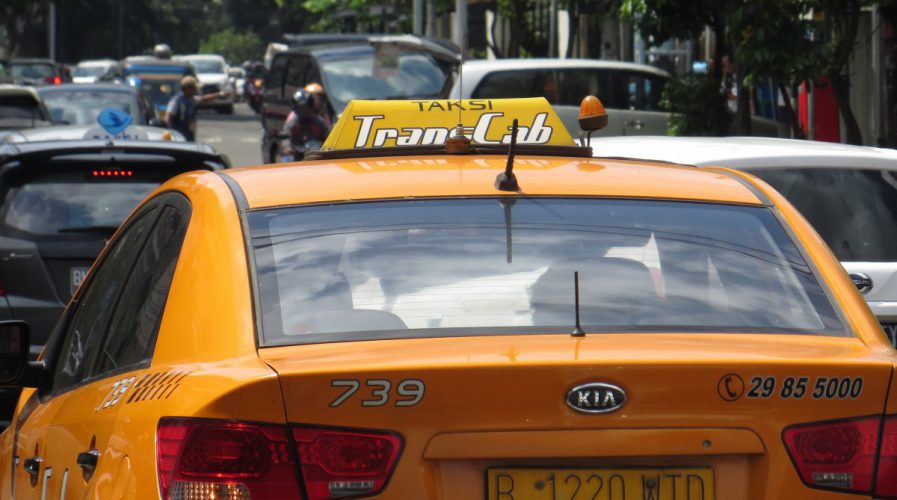
Indonesia has instated new tariffs on ride-hailing services to protect taxi services from being unfairly undercut. Source: Shutterstock
Indonesia implements new tariffs on ride-hailing services to protect local taxis
INDONESIA has set minimum and maximum tariffs for online car-hailing services, aiming to ensure comparable pricing with conventional transport providers whose drivers have complained about being undercut by their newer competitors.
Ride-hailing services such as US group Uber Technologies Inc., Southeast Asia’s Grab and Indonesia’s Go-Jek have heavily subsidised their drivers in Indonesia in order to gain market share in the country of 250 million people, analysts say.
Indonesia sets tariff ranges for online car-hailing services https://t.co/RURBArFhiF pic.twitter.com/OFjlv37BPg
— Reuters Top News (@Reuters) July 2, 2017
The Transport Ministry said it had set a tariff range for online car-hailing services of IDR3,500 to 6,000 rupiah (US$0.26 to US$0.45) per km for the islands of Java, Bali and Sumatra. For Kalimantan, Sulawesi, Nusa Tenggara, Maluku and Papua, the range is IDR3,700 to 6,500 (US$0.28 to US$0.49) per km.
The regulation kicked in on July 1 and will be evaluated in the next six months, the ministry said in a statement.
The ministry’s director-general of land transport Pudji Hartanto Iskandar told Reuters:
“There has to be a balance between conventional and online transport, so that has to be regulated.”
Indonesia’s two biggest established taxi operators are PT Blue Bird Tbk and PT Express Transindo Utama Tbk , whose shares have fallen on investor concerns about competition from the cheaper ride-hailing services.
SEE ALSO: India makes surge pricing legal for ride-hailing apps in new regulation release
Blue Bird and Express drivers have called for a ban on ride-hailing services, claiming they were subject to less stringent requirements than conventional taxis.
Uber said in an emailed statement it had yet to receive a copy of Indonesia’s regulations.
“However, we remain committed to working with the government to find a path forward that accommodates the interests of riders and driver partners and supports innovation, competition and customer choice,” Uber said.
Grab and Go-Jek did not immediately respond to requests for comment. – Reuters
READ MORE
- The criticality of endpoint management in cybersecurity and operations
- Ethical AI: The renewed importance of safeguarding data and customer privacy in Generative AI applications
- How Japan balances AI-driven opportunities with cybersecurity needs
- Deploying SASE: Benchmarking your approach
- Insurance everywhere all at once: the digital transformation of the APAC insurance industry
